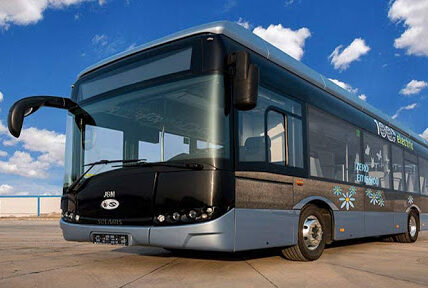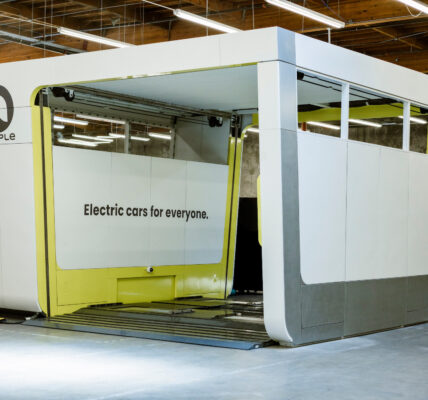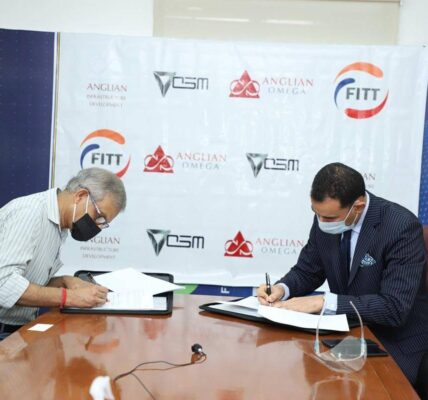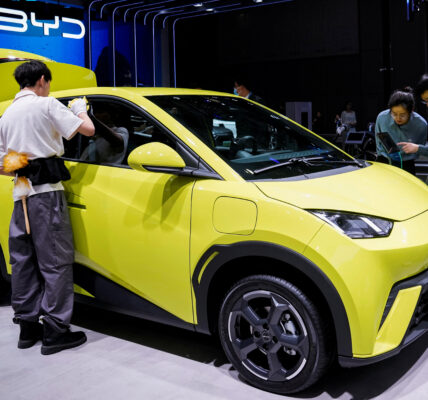Global auto giant Renault Nissan is in the process of gutting working conditions at its car assembly plant in Oragadam on the outskirts of Chennai, the capital of the south Indian state of Tamil Nadu, as part of its transition to electric vehicle (EV) production.
At the beginning of the month, the company switched the plant from a three-shift to a two-shift operation. The company sent a memo to the workers saying that the change is part of “our efforts to enhance efficiency in line with the market and preparation activities for our upcoming new projects.”
This move was preceded by new measures to intensify management’s ruthless regime of exploitation at the factory. The company set up CCTV (close-circuit television) cameras without any consent or agreement from workers, restricted mobile phone usage during working hours and extended the working day beyond eight hours. At the same time, it announced several “non-production days.”
The entrance to the Renault Nissan car assembly plant in Tamil Nadu, India.
Management is claiming the change to two-shift production will entail no loss of jobs among the plant’s “permanent” workforce. The plant currently employs around 6,000 workers, of whom slightly more than half are permanent, with the remainder comprised of apprentices, and temporary and contract workers.
Renault Nissan is a leading global auto company and the second-largest car manufacturer in India. It was formed in 1999 through an alliance of France-based Renault and Japan-based Nissan, and employs nearly 450,000 workers worldwide. Renault Nissan is the leading plug-in electric car manufacturer in the world.
The company began its Indian operations in Oragadam in 2010. Renault Nissan previously manufactured an average of over 192,000 cars every year at the plant, equivalent to one car produced every three minutes. A total of 20 models of cars and SUVs have been built at the Chennai plant so far for both domestic and export markets.
Nissan’s COO (Chief Operating Officer) Ashwani Gupta expressed the company’s intentions to the media, explaining that they require higher efficiency for EV production.
Gupta stated that the new phase will see higher capacity utilization and the introduction of EV production starting in 2025. “We are currently at below 50 percent capacity utilization and are looking at scaling it up to 80 percent over a period of time. At present, we don’t have a plan to set up a new plant as we have got an excellent factory. But, of course, this site needs modernization as we are going in for electrification of products,” Gupta said. According to him, by 2030, Nissan will have around 44 percent of its product mix as electrified cars globally.
A Renault Nissan press release in February said that six new models would be built at the Chennai plent, including four new C-segment SUVs and two new A-segment electric vehicles. The latter “will be the first EVs for both Renault and Nissan in India.”
Early this year, a Memorandum of Understanding (MoU) was signed between the DMK-led Tamil Nadu state government and Renault Nissan in the presence of Chief Minister M.K. Stalin for a new investment of 53 billion Indian rupees ($US640 million).
The automaker’s efforts at modernisation and increased efficiency include laying off workers during the transition, placing the full burden of the transition on their backs.
Renault Nissan workers have pointed out to the World Socialist Web Site how the trade union at the plant is working closely with management in this process.
Last Dec. 23, workers gathered outside the RNITS office inside the Renault Nissan factory and peppered union officials with questions about the sell-out agreement they were being told to immediately vote on. [Photo by worker supplied]
A founding member of the Renault Nissan Rank-and-File Committee-Chennai (RNRFC), which was established by a group of militant Renault Nissan workers last year, commented: “We have not been informed by union leaders who are working hand in glove with management why the shift reductions and non-production days (NPD) have been announced. Many workers in the plant sense that these shift reductions may keep many workers in limbo and management may use this opportunity to easily lay off contract workers and trainees. The transition plan to EV here may also affect permanent workers in the near future. There is surely a danger of job losses.”
The union at the plant, the United Labour Federation (ULF)-affiliated Renault Nissan India Thozhilalar Sangam (RNITS), works as an industrial police force on behalf of management.
Using anti-democratic methods, the RNITS pushed through two concessionary contracts—covering a six-year period from April 2019 to the end of March 2025—over widespread worker opposition 10 months ago. Union officials are known to help Renault Nissan management spy on militant workers.
Any successful struggle by Renault Nissan workers against the management onslaught requires breaking free from the straitjacket of the RNITS and ULF and joining with the Renault Nissan Rank-and-File Committee-Chennai (RNRFC). Workers at the Chennai plant founded the RNRFC last November to organize workers to expose and defeat the union’s collusion with management and forge unity with the struggles of other workers in the Oragadam industrial belt and beyond. The RNRFC fights for the development of a working class counteroffensive against the global attacks of the corporations working in partnership with Modi’s far-right BJP government and the DMK-led Tamil Nadu state government and in connivance with the trade union bureaucracy.
In order to successfully fight corporations like Renault Nissan that operate globally, workers must link their struggles with auto and other workers, not just in Tamil Nadu, but across India and internationally. It is of critical importance for them to establish links with Renault Nissan workers worldwide and autoworkers across North America who are presently fighting against the global auto giants.
In July last year, the Chennai Ford Employees Union (CFEU), working closely with Ford management and Tamil Nadu’s DMK government, called off a militant five-week-long strike led by young workers that was challenging Ford’s “right” to close the plant and throw the workforce onto the scrapheap. Ford is an auto giant which is presently working on converting to EV production. It is financing this conversion through intensified worker exploitation, both so as to maximize profits and attract investors. The Ford closure was part of that plan, as is the planned closing of most of its production facilities in Saarlouis, Germany.
Globally, the auto industry giants are trying to use the phasing out of carbon-gas-producing combustion engine vehicles as a battering ram against the working class. The Big Three auto companies in the US and Canada—GM, Ford and Stellantis—are moving to EV production at the expense of workers’ jobs, wages and other rights with the active collaboration of the United Auto Workers (UAW) and Unifor respectively.
The restructuring taking place in the global auto industry starkly demonstrates the need for the international organization and unification of workers across borders. The national-based unions, whether in India or elsewhere in the world, are always hostile to this perspective, insisting that workers must support “their” corporate bosses against foreign rivals by lowering labor costs.
The transition to EVs cannot be allowed to take place at workers’ expense. Social ownership and workers’ democratic control of the auto industry are needed so that benefits of this transition flow to those who produce society’s wealth, through a massive improvement of workers’ living standards and working conditions, including a reduced work-week, throughout the world.






